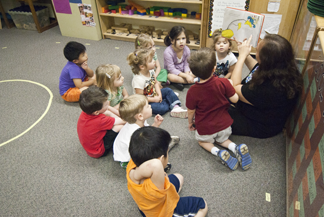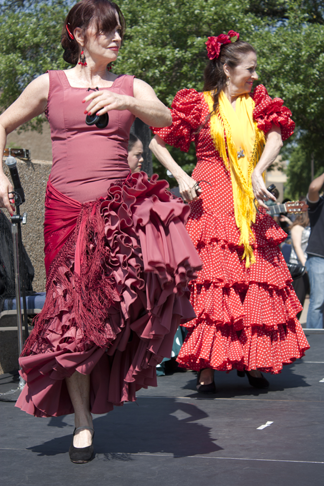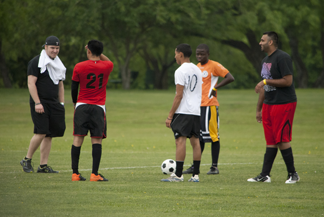By Elaine Bonilla/south news editor
Teachers influence and encourage children seven hours a day, and majoring in education is the foundation for those wanting to become teachers.
Shereah Fonteno, South’s teacher education coordinator, helps the majors when it comes to signing up for education courses, setting up observation sites for students, even narrowing down what the student wants to teach and where the student is transferring.
Students get in touch with the university they want, and they get an idea of what education courses are needed to transfer.

David Reid/The Collegian
As students get more experience in the field, they can then get an idea of the type of setting or age they would like to teach: elementary, middle, high school, special education classes or bilingual dual.
“Education is the way to make a difference,” student Maricela Pineda said. “Teaching doesn’t pay much, but knowing I can make a difference by providing hope and encouragement is why I want to teach.”
Pursuing an education degree requires a yearly $23 criminal background check prior to enrolling in certain education courses and 16 hours of classroom observation per course taken, which can be completed throughout the semester.
Some students have difficulties fulfilling their observation requirements because they are already teacher assistants, Fonteno said.
“By law in the state of Texas, a student can’t get paid at the same time as getting a grade,” she said.
Some of the students in this predicament have talked with the schools where they work and are giving up some of their hourly pay in exchange for observation hours.
Other students are given days off to observe at other schools.
Fonteno said the majority of students are successful because they want to be there and have already invested their time and shown dedication.
NE child development and education department chair Stephanie Scroggins said the programs are the same on South and NE, both offering Associate of Arts in Teaching degrees, but NE also offers a child development program.
The child development program offers an Associate of Applied Science degree and four different certificates in Child Care Administration, Preschool Child Care Provider, School Age Provider and Child Development Associate.
The Children’s Center serves as a learning lab on NE, where students can perform their observation and training with children ages 2-4. It is a teaching program for preschool children of students, faculty, staff and the community.
“There are generations of faculty here on the NE Campus whose family has gone to the center,” Scroggins said.
Students can work along with the teachers in the classroom or watch the children from observation booths, which have monitors so students can hear and see the children.
“Since it is a teaching facility, students from universities in the area come to do their field work,” Scroggins said.
The Children’s Center will host an Early Childhood Conference, which will combine art and science learning, 8:30 a.m.-noon April 21.
The conference, which will be held in NSTU 1615A, will feature Kathy Morrison, the director of early childhood education at the University of Texas at Tyler, and author Stephanie Allen-Adams as speakers.





























